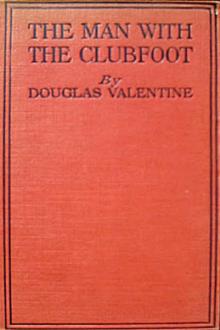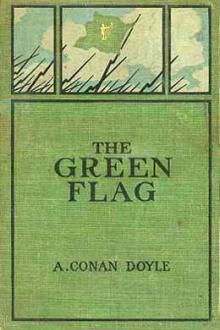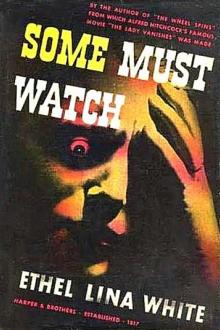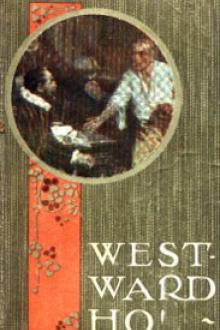Genre War. Page - 4

us would have to do would be to step u few feet either to the left or right and we could drink all the water we desired. But we had strict orders to drink no water. If anyone of us attempted to get water, we would be shot, just as we would be if we accepted food from the Filipinos.
We found out that the Japs meant this order. They took everything they desired from us when we started this march. They took all the clothing that they wanted for themselves, all watches, fountain pens, etc. During the noon hour every day they would give us 'about face' and march us for five or eight miles to the rear, between noon and 2 P.M. when it was terrificly hot.
Hundreds were killed by the guards or died from exhaustion.
The Japs were moving vast amounts of equipment south and installing guns along the beach preparatory to landing on Corregidor. During this march the Americans on Corregidor were firing at the Japs and we had many men who were injured from this shell- ing from our own lines.

n purple ink beneath the name and address of Mynheer van Urutius ... that was all.
My heart sank with disappointment and wretchedness as I read the inscription.
Here is the document:
* * * * *
Herr Willem van Urutius, Automobilgeschäft, Nymwegen. Alexandtr-Straat 81 bis.
Berlin, Iten Juli, 16.
O Eichenholz! O Eichenholz! Wie leer sind deine Blätter.
Wie Achiles in dem Zelte.
Wo zweie sich zanken Erfreut sich der Dritte.
* * * * *
(Translation.)
Mr. Willem van Urutius, Automobile Agent, Nymwegen. 81 bis Alexander-Straat.
Berlin, 1st July, 16.
O Oak-tree! O Oak-tree, How empty are thy leaves.
Like Achiles in the tent.
When two people fall out The third party rejoices.
* * * * *
I stared at this nonsensical document in silence. My thoughts were almost too bitter for words.
At last I spoke.
"What's all this rigmarole got to do with Francis, Dicky?" I aske

s a new empire. This handful of men was waylaid by the Boers and cut up, as their successors have been so often since. The survivors, however, fortified themselves, and held a defensive position--as also their successors have done so many times since--until reinforcements arrived and the farmers dispersed. Natal from this time onward became a British colony, and the majority of the Boers trekked north and east with bitter hearts to tell their wrongs to their brethren of the Orange Free State and of the Transvaal.
Had they any wrongs to tell? It is difficult to reach that height of philosophic detachment which enables the historian to deal absolutely impartially where his own country is a party to the quarrel. But at least we may allow that there is a case for our adversary. Our annexation of Natal had been by no means definite, and it was they and not we who first broke that bloodthirsty Zulu power which threw its shadow across the country. It was hard after such trials and such exploits to turn their

eally the simplest Earth element, lying within easy reach of any one who stretches out his hand to grasp and control its powers."
Rob yawned, for he thought the Demon's speeches were growing rather tiresome. Perhaps the genius noticed this rudeness, for he continued:
"I regret, of course, that you are a boy instead of a grown man, for it will appear singular to your friends that so thoughtless a youth should seemingly have mastered the secrets that have baffled your most learned scientists. But that can not be helped, and presently you will become, through my aid, the most powerful and wonderful personage in all the world."
"Thank you," said Rob, meekly. "It'll be no end of fun."
"Fun!" echoed the Demon, scornfully. "But never mind; I must use the material Fate has provided for me, and make the best of it."
"What will you give me first?" asked the boy, eagerly.
"That requires some thought," returned the Demon, and paused for several moments, while Rob feasted his eyes

-glass.
"Tell Colonel Flanagan to see to it, Stephen," said the general; and thegalloper sped upon his way. The colonel, a fine old Celtic warrior, wasover at C Company in an instant.
"How are the men, Captain Foley?"
"Never better, sir," answered the senior captain, in the spirit thatmakes a Madras officer look murder if you suggest recruiting hisregiment from the Punjab.
"Stiffen them up!" cried the colonel. As he rode away a colour-sergeantseemed to trip, and fell forward into a mimosa bush. He made no effortto rise, but lay in a heap among the thorns.
"Sergeant O'Rooke's gone, sorr," cried a voice. "Never mind, lads,"said Captain Foley. "He's died like a soldier, fighting for his Queen."
"Down with the Queen!" shouted a hoarse voice from the ranks.
But the roar of the Gardner and the typewriter-like clicking of thehopper burst in at the tail of the words. Captain Foley heard them, andSubalterns Grice and Murphy heard them; but there are times when a deafear is a gift

riter, therefore, of the present day to choose battles for hisfavourite topic, merely because they were battles, merely becauseso many myriads of troops were arrayed in them, and so manyhundreds or thousands of human beings stabbed, hewed, or shoteach other to death during them, would argue strange weakness ordepravity of mind. Yet it cannot be denied that a fearful andwonderful interest is attached to these scenes of carnage. Thereis undeniable greatness in the disciplined courage, and in thelove of honour, which make the combatants confront agony anddestruction. And the powers of the human intellect are rarelymore strongly displayed than they are in the Commander, whoregulates, arrays, and wields at his will these masses of armeddisputants; who, cool yet daring, in the midst of peril reflectson all, and provides for all, ever ready with fresh resources anddesigns, as the vicissitudes of the storm of slaughter require.But these qualities, however high they may appear, are to befound in the

the residential quarter of a prosperous town. It should have been surrounded by an acre of well-kept garden, and situated in a private road, with lamp-posts and a pillar-box.
For all that, it offered a solidly resistant front to the solitude. Its state of excellent repair was evidence that no money was spared to keep it weather-proof. There was no blistered paint, no defective guttering. The whole was somehow suggestive of a house which, at a pinch, could be rendered secure as an armored car.
It glowed with electric-light, for Oates' principal duty was to work the generating plant. A single wire overhead was also a comfortable reassurance of its link with civilization.
Helen no longer felt any wish to linger outside. The evening mists were rising so that the evergreen shrubs, which clumped the lawn, appeared to quiver into life. Viewed through a veil of vapor, they looked black and grim, like mourners assisting at a funeral.
"If I don't hurry, they'll get between me and the house,

ssed the bottomof the High Street, he came opposite to one of the many tavernswhich looked out upon the river. In the open bay window satmerchants and gentlemen, discoursing over their afternoon's draughtof sack; and outside the door was gathered a group of sailors,listening earnestly to some one who stood in the midst. The boy,all alive for any sea-news, must needs go up to them, and take hisplace among the sailor-lads who were peeping and whispering underthe elbows of the men; and so came in for the following speech,delivered in a loud bold voice, with a strong Devonshire accent,and a fair sprinkling of oaths.
"If you don't believe me, go and see, or stay here and grow allover blue mould. I tell you, as I am a gentleman, I saw it withthese eyes, and so did Salvation Yeo there, through a window in thelower room; and we measured the heap, as I am a christened man,seventy foot long, ten foot broad, and twelve foot high, of silverbars, and each bar between a thirty and forty pound weight.

fairs of theworld and almost from the world itself, whose faculties are deepenedby suffering and meditation, as far remote from their fellow men asif they were already of the Future--these men look deeply into thedistance, towards the unknowable land of the living and the insane.
"Austria's act is a crime," says the Austrian.
"France must win," says the Englishman.
"I hope Germany will be beaten," says the German.
They settle down again under the blankets and on the pillows,looking to heaven and the high peaks. But in spite of that vastpurity, the silence is filled with the dire disclosure of a momentbefore.
War!
Some of the invalids break the silence, and say the word again undertheir breath, reflecting that this is the greatest happening of theage, and perhaps of all ages. Even on the lucid landscape at whichthey gaze the news casts something like a vague and somber mirage.
The tranquil expanses of the valley, adorned with soft and smoothpastures and hamlets rosy as the rose,

soil us! here was a good shoot!"
Bennet raised the old archer on his knee. He was not yet dead; his face worked, and his eyes shut and opened like machinery, and he had a most horrible, ugly look of one in pain.
"Can ye hear, old Nick?" asked Hatch. "Have ye a last wish before ye wend, old brother?"
"Pluck out the shaft, and let me pass, a' Mary's name!" gasped Appleyard. "I be done with Old England. Pluck it out!"
"Master Dick," said Bennet, "come hither, and pull me a good pull upon the arrow. He would fain pass, the poor sinner."
Dick laid down his cross-bow, and pulling hard upon the arrow, drew it forth. A gush of blood followed; the old archer scrambled half upon his feet, called once upon the name of God, and then fell dead. Hatch, upon his knees among the cabbages, prayed fervently for the welfare of the passing spirit. But even as he prayed, it was plain that his mind was still divided, and he kept ever an eye upon the corner of the wood from which the shot had come